Comprehensive Review of Blood Banking VIDEO + PDF
$110
Comprehensive Review of Blood Banking VIDEO + PDF
Comprehensive Review of Blood Banking
Comprehensive Review of Blood Banking features 17 state-of-the-art lectures taught by experts in blood management and transfusion medicine. It is available online or on disk and is a convenient way to earn CME credit and stay on top of the latest guidelines. The program is designed to advance the practice and standards of transfusion medicine and cellular therapies. It is the ideal home study course for training and practicing pathologists and cytopathologists looking to expand their knowledge of transfusion medicine, optimize patient/donor care and safety, and learn the proper protocols for Patient Blood Management. The course will help you to better:
-
-
- Describe the blood components obtained and processed at blood center collection facilities.
- Recognize the clinically significant blood groups and how to test for their presence (group, typing, antibody screen, antibody identification).
- Identify the many adverse reactions that can occur with blood transfusion.
- Apply guidelines for transfusion of the products using evidence-based criteria.
- Discuss blood components, how they are collected, processed and used appropriately.
- Apply the most updated knowledge and molecular techniques in daily practice.
-
Discover New Guidelines
A clinically based review, this Comprehensive Review of Blood Banking provides a maximum of 13 AMA PRA Category 1 Credits ™. Available online, it provides access to unbiased, evidence-based content and case-based reviews so that you may expand your knowledge of this critical sub-specialty. This activity meets the American Board of Pathology’s Maintenance of Certification (MOC) requirements for Part II (CME and SAMs) Lifelong Learning and self assessment.
-
- Selection and Screening of Donors – Jay Menitove, MD
- Product Modification (irrad, LR, frozen, washed) – Jay Menitove, MD
- Adverse Reactions – Jay Menitove, MD
-
- ABO Rh – Deanne Stephens, MT (ASCP) SBB
-
- Minor Blood Groups – Bernadette Graves, MT (ASCP) SBB
-
- Antibody ID and Screen – Gina Folk, BS, MLS (ASCP) SBB
-
- Red Cells and Related Products – Lowell Tilzer, MD, PhD
- Therapeutic Apheresis – Lowell Tilzer, MD, PhD
-
- Plasma Transfusion – Aryeh Shander, MD
-
- Platelet Transfusion – Ira A. Shulman, MD
-
- Special Transfusions (HIV, neonatal, autoimmune) – Paul Ness, MD
-
- Preoperative Blood Management – Elora Thorpe, RN, MSN
-
- Perioperative Blood Management – Jerod Grove, MD
- Massive Transfusion Protocol – Jerod Grove, MD
-
- Coag Factor Concentrates – Brian Wicklund, MDCM, MPH
-
- Patient Blood Management – Ky Stoltzfus, MD
-
- Dosing Rh Immune Globulin for Rh Immunoprophylaxis – S. Gerald Sandler, MD, FACP, FCAP
-
Accreditation
Oakstone Publishing, LLC is accredited by the Accreditation Council for Continuing Medical Education to provide continuing medical education for physicians.
Designation
Oakstone Publishing, LLC designates this enduring material for a maximum of 13 AMA PRA Category 1 Credits ™. Physicians should claim only the credit commensurate with the extent of their participation in the activity.
Date of Original Release: August 1, 2015
Date Credits Expire: August 1, 2018CME credit is awarded upon successful completion of a course evaluation and post-test.
This activity meets the American Board of Pathology’s Maintenance of Certification (MOC) requirements for Part II (CME and SAMs) Lifelong Learning and self assessment.
Learning Objectives
At the conclusion of this CME activity, you will be better able to:
- Describe the blood components obtained and processed at blood center collection facilities
- Recognize the clinically significant blood groups and how to test for their presence (group, typing, antibody screen, antibody identification)
- Identify the many adverse reactions that can occur with blood transfusion
- Apply guidelines for transfusion of the products using evidence-based criteria
- Discuss blood components, how they are collected, processed and used appropriately
- Apply the most updated knowledge and molecular techniques in daily practice
-
Intended Audience
Pathology residents, practicing pathologists for re-certification (clinical pathology boards or transfusion medicine subspecialty boards).
Only logged in customers who have purchased this product may leave a review.
Related Products
Basic Sciences Books
Basic Sciences Books
Family Nurse Practitioner Certification Prep Plus (Kaplan Test Prep) (AZW3 + + Converted PDF)
Basic Sciences Books
Clinical Biochemistry: An Illustrated Colour Text, 7th edition
Anatomy Books
Basic Sciences Books
Trauma Surgery Essentials: A Must-Know Guide to Emergency Management
VIDEO MEDICAL
VIDEO MEDICAL
VIDEO MEDICAL
VIDEO MEDICAL
VIDEO MEDICAL
VIDEO MEDICAL
VIDEO MEDICAL
VIDEO MEDICAL
VIDEO MEDICAL
VIDEO MEDICAL
VIDEO MEDICAL
VIDEO MEDICAL
VIDEO MEDICAL
VIDEO MEDICAL
Classic Lectures in Pathology: What You Need to Know: Neuropathology – A Video CME Teaching Activity
VIDEO BASICMEDICAL
Practical Molecular Pathology for the Surgical Pathologist Masters of Pathology Series
VIDEO BASICMEDICAL
VIDEO BASICMEDICAL
VIDEO BASICMEDICAL
VIDEO BASICMEDICAL
VIDEO BASICMEDICAL
VIDEO BASICMEDICAL
VIDEO BASICMEDICAL
VIDEO BASICMEDICAL
VIDEO BASICMEDICAL
VIDEO BASICMEDICAL
VIDEO BASICMEDICAL
VIDEO BASICMEDICAL
VIDEO BASICMEDICAL
VIDEO BASICMEDICAL
VIDEO BASICMEDICAL
VIDEO BASICMEDICAL
Doctors In Training USMLE Step 1 Review Course 2018 only + PDF
VIDEO BASICMEDICAL
Current Topics in Gastrointestinal and Liver Pathology 2017-Videos+PDF
VIDEO BASICMEDICAL
USMLE Step 2 CK Lecture Notes 2018: 5-Book Set (USMLE Prep) 1st Edition
VIDEO BASICMEDICAL
USMLE Step 1 Lecture Notes 2018: 7-Book Set (Kaplan Test Prep) 1st Edition
VIDEO BASICMEDICAL
VIDEO BASICMEDICAL
VIDEO BASICMEDICAL
VIDEO BASICMEDICAL
VIDEO BASICMEDICAL
2016 Computed Tomography – NEURO CT only – A Video CME Teaching Activity
VIDEO BASICMEDICAL
VIDEO BASICMEDICAL
VIDEO BASICMEDICAL
KAPLAN USMLE Step 3 Online Prep On Demand 2017 2018 (Videos)
VIDEO BASICMEDICAL
KAPLAN USMLE Step 2 Online Prep Videos On Demand 2017 2018 (Videos)
VIDEO BASICMEDICAL
KAPLAN USMLE Step 1 Online Prep Videos On Demand 2017 2018 (Videos)
VIDEO BASICMEDICAL
VIDEO BASICMEDICAL
VIDEO BASICMEDICAL
VIDEO BASICMEDICAL
VIDEO BASICMEDICAL
VIDEO BASICMEDICAL
VIDEO BASICMEDICAL
VIDEO BASICMEDICAL
VIDEO BASICMEDICAL
Step 1 Prep – On Demand 2016-2017 – Videos ( Include Barone’s Pathology )
VIDEO BASICMEDICAL
VIDEO BASICMEDICAL
VIDEO BASICMEDICAL
VIDEO BASICMEDICAL
VIDEO BASICMEDICAL
VIDEO BASICMEDICAL
VIDEO BASICMEDICAL
VIDEO BASICMEDICAL
VIDEO BASICMEDICAL
VIDEO BASICMEDICAL
Comprehensive Review of Cardiovascular Pathology VIDEO + PDF
VIDEO BASICMEDICAL
VIDEO BASICMEDICAL
VIDEO BASICMEDICAL
VIDEO BASICMEDICAL
VIDEO BASICMEDICAL
VIDEO BASICMEDICAL
Central Nervous System Pathology – A Comprehensive Review VIDEO + PDF
VIDEO BASICMEDICAL
Pancreatobiliary Pathology – A Comprehensive Review VIDEO + PDF
VIDEO BASICMEDICAL
VIDEO BASICMEDICAL
VIDEO BASICMEDICAL
VIDEO BASICMEDICAL
Gastrointestinal Pathology – Masters of Pathology Series 2015 – Videos + PDF
VIDEO BASICMEDICAL
Breast Pathology – Masters of Pathology Series 2015 – Videos + PDF
VIDEO BASICMEDICAL
Current Topics in Gastrointestinal and Liver Pathology 2015 – Videos + PDF
VIDEO BASICMEDICAL
VIDEO BASICMEDICAL
VIDEO BASICMEDICAL
Kaplan USMLE Step 3 Live Classroom Anywhere (May 4 – June 1) 2015
VIDEO BASICMEDICAL
VIDEO BASICMEDICAL
Kaplan USMLE Step 2 Live Classroom Anywhere (April 13 – June 18) 2015
VIDEO BASICMEDICAL
VIDEO BASICMEDICAL
VIDEO BASICMEDICAL
VIDEO BASICMEDICAL
VIDEO BASICMEDICAL
VIDEO BASICMEDICAL
VIDEO BASICMEDICAL
VIDEO BASICMEDICAL
kaplan usmle Step 1 Prep – On Demand 2016-2017 – Videos ( Include Barone’s Pathology )

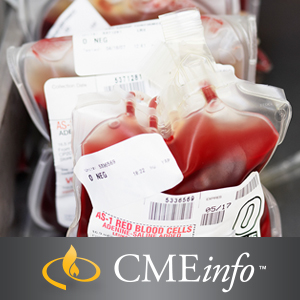
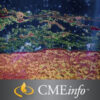
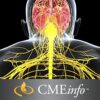





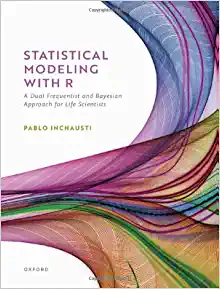
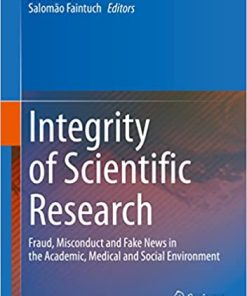
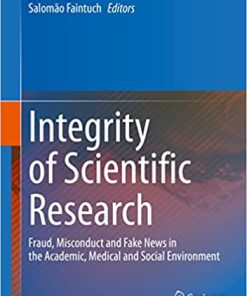

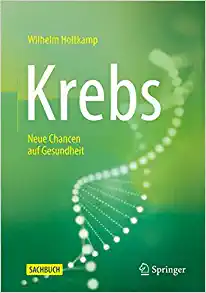


























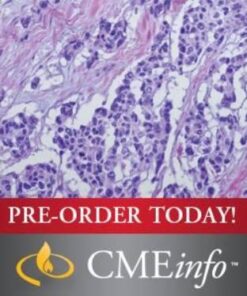






























































Reviews
There are no reviews yet.